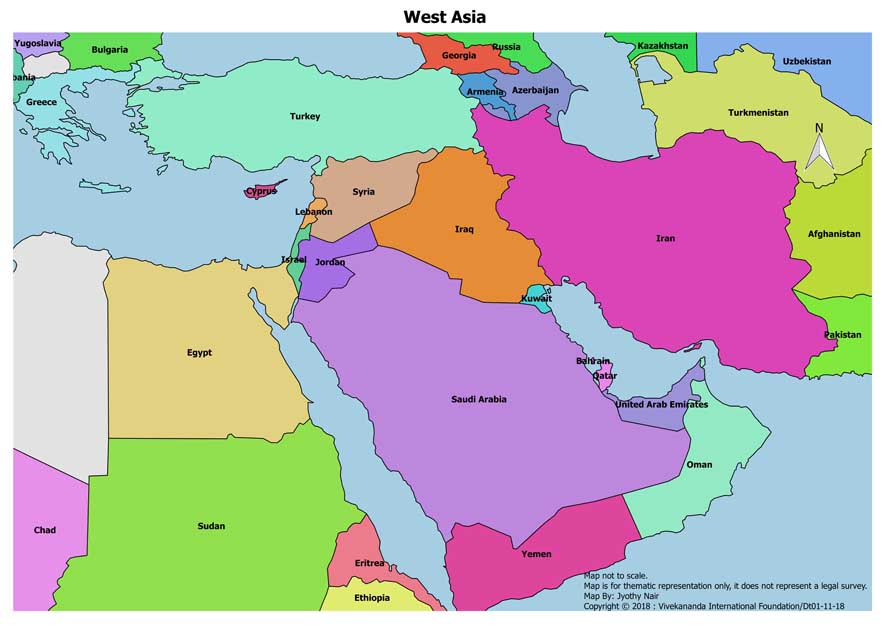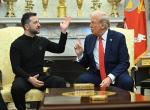Kingdom of Saudi Arabia (KSA) - Jamal Khashoggi Fiasco
Saudi Arabia and its maverick Prince Mohammed Bin Salman called upon themselves the global criticism due to a botched up assassination of an insider-outsider critic in Khashoggi inside their Istanbul Consulate through the modus operandi and consequent conflicting statements on the issue. The killing of Saudi Arabian journalist Jamal Khashoggi has sent shockwaves over the international community. Khashoggi who was a staunch critic of Saudi Crown Prince Mohammed Bin Salman (MBS) was seen entering the Saudi Arabian consulate in Turkey on October 2. Soon after that there were reports related to his disappearance and it was eventually confirmed that he was killed.
The news of his disappearance was alerted by Washington Post, the paper which he worked for. CCTV images show Khashoggi entering the consulate premises. This has led to serious allegations that the Saudi monarchy could be involved in his death. If true, this could lead to widespread repercussions, some of which have already been felt by Saudi Arabia. The Future Investment Initiative (FII) aka ‘Davos in the Desert’, which was held in Riyadh, saw a flurry of boycotts from prominent western leaders and companies.
Saudi Arabia has also been continuously shifting its narratives regarding Khashoggi’s death. After initial reports regarding his death, crown prince MBS said that Khashoggi had left the consulate “after a few minutes or one hour”, while suggesting that Turkish authorities could search the consulate. When Turkish officials claimed that Khashoggi had been murdered inside the consulate, Saudi officials rejected these claims as “baseless”. Later Saudi agrees to form a joint team with Turkish investigators to probe his death. Soon after, Saudi officials agreed that Khashoggi had been killed by a “hit squad” of “tourists” hired for the job. Further down the line they said that Khashoggi died due to a series of “altercations” and “fist fights” within the consulate.
The incident attracted worldwide condemnation of the Saudi monarchy. US president Donald Trump had called the Saudi account of Khashoggi’s death as the “worst cover up”. President Trump has also expressed doubts over several military deals with Saudi Arabia and most recently US Secretary of State Mike Pompeo demanded that Saudi led coalition forces in Yemen to stop deliberately bombing populated areas.
The event has several repercussions for the Saudis even though they overtly tried to dismiss any involvement of MBS and attributed it to some rogue elements. In a show of bravado, the Kingdom also outlined some 30 sanctions should the international community impose sanctions on the regime. But no one really believes that. US Government, being their staunch ally, is also at bay with differing statements coming out at various times, but they can not brush it under the carpet due to congressional and liberal media pressure. Even though Trump would not like to dump the $110 bn arms deal, Germany and some other western countries decided to block any arms supplies and withdrew their participation from the so called ‘Davos in Desert’ meet.
Turkey, especially Erdogan, got a chance of a life time to revenge its 2015 coup attempt, supposedly with the Saudi blessings, by conducting a detailed investigation and releasing the information and video footage in bits and pieces to keep the pressure on. While Erdogan acknowledges the innocence of King Salman, he indirectly referred to complicity of MBS and demanded that KSA hand over the 14 arrested accomplices. Turkey would be interested in getting the Qatar siege lifted.
As usual UAE, Jordan, Bahrain and Arab League were appreciative of the steps taken by KSA leadership. Qatar kept a muted silence. After a long time, newly found friend in Israel wanted complete investigation without alleging the MBS involvement. Russia and China showed their support to Saudis through participation at the much-hyped Investment Summit. Whether eventually King, who is said to be incapacitated, will replace MBS with another Crown Prince is yet to be seen as MBS as of now controls the reins of power and US is still wavering in its approach. Although dissident Prince Khalid bin Talal, brother of powerful and wealthy Prince Waleed, was released after 11 months in prison after he was arrested with a dozen others on corruption charges, and as the family of Khashoggi were allowed to leave Saudi Arabia, pressure on the Saudi leaders continues. By default, the event might have a salutary impact for the regional stability.
Saudi Arabia to the Rescue of Pakistan
Saudi Arabia recently pledged a $6 billion loan to Pakistan, which is facing an economic crisis of huge proportions. The loan is divided into $3 billion dollars as balance of payments support and a further $3 billion loan for payment of oil imports.
This comes as a huge relief for the Pakistani economy which suffering from a mounting balance of payments deficit and falling foreign exchange reserves. This loan comes in the midst of Pakistan approaching the International Monetary Fund (IMF) to seek financial help to alleviate the crisis. This is also not the first time Saudi Arabia is helping Pakistan during a financial crisis. Saudi aid was received by Pakistan during the 1970s, and in 2014, Saudi granted a $1.5 billion loan to Pakistan to bolster its foreign exchange reserves.
Pakistan’s desperate need for help was also seen when PM Imran Khan visited Riyadh for the Davos in the Desert or the Future Investment Initiative (FII) event. The visit came amidst a global uproar against the murder of Saudi journalist Jamal Khashoggi, allegedly with the connivance of the Saudi monarchy. Pakistan’s situation is indeed desperate and financial assistance from its long-standing ally would help in providing much needed relief. Imran’s second visit to Riyadh not only indicated his limited options but assured the Saudis that they can count on Pakistan through thick and thin and they can continue to command their allegiance.
Syria - Istanbul Summit
The Summit was hosted by Turkey’s President Recep Tayyip Erdogan in regards to bringing about a peaceful solution to the Syrian conflict. Russian, German and French heads of state were also part of the Summit. The Summit heavily focused on the fate of Syrian president Bashar Al Assad and all leaders jointly agreed that it was the people of Syria that should have the final say on the matter.
The Summit also focused on the fate of Idlib Province and tried to plug gaps and find a lasting solution. Just like the Tehran Summit, the US was not involved in the Istanbul Summit. US involvement could have further boosted the negotiations. The Summit saw members of the Astana Process Group and Syria Working Group come together but the major bottleneck in the talks was resolving differences between the parties.
Although the Summit called for ‘lasting peace’, no concrete agreement was reached towards achieving the goal. Russia has brought up the issue of returning Syrian refugees and rebuilding the Syrian economy. The returning of refugees is popular view held within EU circles. This move can be seen as Russia flexing its political muscle in the region after establishing its military clout by restoring the Assad regime to power.
While the Summit focused on finding new ways to solve the Syrian puzzle, very little progress has been made.
Jordan not to Review Land Deal with Israel
Jordanian officials said that the Hashemite Kingdom would not be renewing a land deal with Israel. The deal which was signed 25 years ago in 1994, allows Israeli farmers to use Jordanian annexes of Baqoura and Ghumar. The land is also currently administered by Israel under its local land laws. It was agreed that Jordan would have to notify Israel one year before the deal terminates on October 25, 2019.
The land deal was part of the historic Israel-Jordan Peace Treaty of 1994. Recently, there has been huge public outcry over Israel’s use of Jordanian territory and King Abdullah was under tremendous pressure to cancel the deal. The monarch said that “these are Jordanian lands and they will remain so.”
Currently, Jordan’s relationship with Israel is stable and economic ties are booming. They have also exchanged Ambassadors. Yet, public opinion in Jordan is very much against the peace deal with Israel since over 60 percent of the population is of Palestinian origin and the Gaza conflagration continues. King Abdullah’s decision not to renew the land deal is a result of intense public pressure. It seems that Jordan remains keen on maintaining the peace deal and this could be the reason why there has been a very measured reaction from Israel, especially PM Benjamin Netanyahu who acknowledged the decision of Jordan while saying that Israel would try to keep the mechanism ongoing.











Post new comment